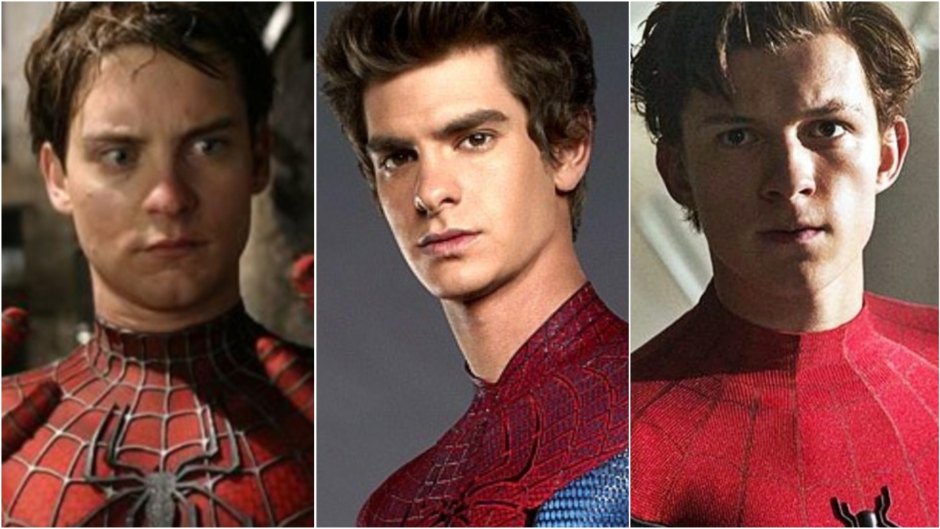
Spider-Man Movies Will Never Stop — And Now You Can Find Out Why (EXCLUSIVE)
Let’s face it, Spider-Man movies have become a force of nature and they’re not going anywhere. In fact, you’re pretty much guaranteed to see new adventures of the wall-crawler for years to come, whether these superhero movies are clicking at the box office or not, otherwise the rights to the character will go from Sony Pictures back to Marvel Studios/Disney and you know that’s not going to happen.
“Marvel in the 1980s was stable and prosperous as a comics company,” offers author and comics historian Peter Sanderson in an exclusive interview. “But Marvel changed ownership numerous times between the 1980s and 1990s and fell into chaos, major downsizings, and bankruptcy. It was around the start of the 1980s that Stan Lee relocated to California from New York in order to try and make deals for movies and TV shows based on Marvel characters. But he and Marvel had little success at doing this for many years.”

(Photo by Ramon Costa/SOPA Images/LightRocket via Getty Images)
Until the start of the 21st Century, Hollywood had almost no interest in doing movies about superheroes or the Superman and Batman franchises, which had been viewed as exceptions had already run their course.
“Stan and Marvel either couldn’t interest people in deals,” says Peter, “or production companies would option Marvel characters and never do anything with them, or the few movies that did get made weren’t good or faithful to the original comics. The Blade movies were Marvel’s first film success, but they were about a vampire hunter, not a superhero. So I think Marvel was trying to make whatever deal they could over film rights. But not until the first X-Men movie in 2000 was there a successful movie about Marvel superheroes.

(Photo by Albert L. Ortega/Getty Images)
“Until the 2000s, no one thought that a Marvel Cinematic Universe was possible,” he continues. “Marvel was just trying to make deals with studios and a studio that wanted to do Spider-Man probably didn’t want to take on other major Marvel heroes as well. Eventually, most production companies and studios’ options on Marvel characters expired and the film rights reversed to Marvel. So Marvel Studios has the film rights to the vast majority of Marvel characters.”
But there were some major exceptions. 20th Century Fox had Fantastic Four, the X-Men and its extensive related mutant universe (which includes Hugh Jackman’s Wolverine and Ryan Reynolds’ Deadpool), while Sony had (and has) Spider-Man and related characters. And the way these contracts work, you either make films or you forfeit your rights to the characters.

(Photo by Noam Galai/Getty Images for New York Comic Con)
Peter notes, “Fox used to have Daredevil, but decided not to make a second movie, so the film rights reverted to Marvel. On the other hand, Fox made a third bad Fantastic Four movie before their rights would otherwise expire. Sony did a Ghost Rider movie, but let the rights revert to Marvel. Universal did the first Hulk movie, but Marvel reacquired the film rights. With Disney’s imminent acquisition of Fox, Marvel Studios will be able to integrate the Fantastic Four and X-Men into the Marvel Cinematic Universe and I expect that Marvel will reboot and recast both.”
Reboots today, of course, are certainly nothing new, and what used to incite outrage (“Hollywood is creatively bankrupt!”) has now become accepted with little more than a shrug and a roll of the eyes. Somewhere in between has fallen Spider-Man in the sense that since 2002, the character has been featured on the big screen in three separate franchises from Sony.

(Photo Credit: Sony Pictures)
It started with Tobey Maguire for three films, continued with Andrew Garfield in two, and currently features Tom Holland, who has appeared in Captain America: Civil War, Spider-Man: Homecoming, and Avengers: Infinity War, and will be a part of 2019’s Avengers: Endgame and Spider-Man: Far From Home. In total, then, we’ve had three actors playing Spidey and his alter-ego Peter Parker in a total of 10 films over the course of what will be seventeen years.
The fact that Spider-Man, who was created in 1962 by the late Stan Lee and Steve Ditko, continues to thrive on the big screen is something of a miracle when you consider the circuitous route — filled with legal obstacles — it took to get there.
For a look at the behind-the-scenes history of Spider-Man on film, just scroll down!

Getty Images

Sony Pictures


Sony Pictures

Scott Barbour/Getty Images

Siemoneit/Sygma via Getty Images

Marvel Entertainment

Sony Pictures

YOSHIKAZU TSUNO/AFP/Getty Images

JOHN MACDOUGALL/AFP/GettyImages

Marvel Studios

Victor Chavez/WireImage

Sony Pictures

marvel comics








































